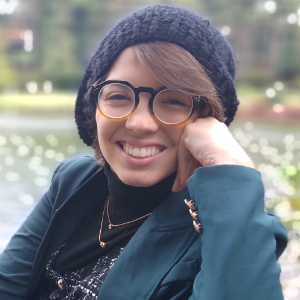Lara Isis Teodoro, Mayo Clinic, United States
Background: The mpox virus (MPXV) is a zoonotic disease that gained worldwide attention with the 2022 global outbreak. Current vaccination and post-exposure prophylaxis against MPXV consists of live vaccinia virus-based vaccines originally developed against smallpox. This study e [....] » Read More















Title : Prophylactic and molecular approaches for mitigating human influenza A viruses: i. Evaluating influenza vaccine effectiveness in the older population ii. Down-regulation of influenza virus genes with novel sirna-chimeric-ribozyme constructs
Madhu Khanna, University of Delhi, India
Influenza viruses continue to cause severe emerging and remerging outbreaks worldwide. Recent viral pandemics of the 2009 [pandemic influenza A (H1N1)] and 2019 (SARS-CoV-2), have enhanced the need of vigilance for combating such emerging and re-emerging viral outbreaks and mitig [....] » Read More
Title : Development of a novel multi-component vaccine to address the burden of otitis media in high-risk populations
Ayesha Zahid, Griffith University, Australia
Background: Middle ear infection (otitis media) remains the most common childhood disease diagnosed among Australian Indigenous children. Despite extensive antibiotic usage, it persists as a significant health concern, characterized by substantial morbidity and economic burden. S [....] » Read More
Title : New biomarkers in leishmania major vaccine development
Negar Seyed, Pasteur Institute of Iran, Iran (Islamic Republic of)
Leishmaniasis (a sandfly0borne disease) is caused by the unicellular parasite from Leishmania genus and is already a major thread in tropical and subtropical regions of the world but the distribution map could shift to other regions due to climate change. Unfortunately, no vaccin [....] » Read More
Title : Capillary electrophoresis for adjuvanted multivalent recombinant vaccine purity determination
Ashley Prout, Merck, United States
Gardasil® and Gardasil®9 are multivalent recombinant vaccines consisting of adjuvanted virus-like particles (VLP) assembled from monomers of the main structural protein (L1) of the human papilloma virus (HPV) expressed in Saccharomyces cerevisiae yeast. The critical quali [....] » Read More
Title : Hypersensitivity and anti-SARS-COV-2 vaccination: A retrospective study of the year 2021 at the University Hospital Center of Tours (France)
Faure Quentin, The Savoie Metropolitan Hospital Center, France
Preamble: In the context of the COVID-19 pandemic, a mass vaccination campaign was organized. In December 2020, the High Health Authority (Haute Autorité de Santé) recommended, as a precautionary principle, to contraindicate anti-SARS-COV-2 vaccination for any pers [....] » Read More
Title : Targeting resistance: New 4-substituted pyrazolidine and isoxazolidine as antibiotics with interesting antimicrobial activities
Yousfi Tarek, Nationale Research for Biotechnology Research Center, Algeria
A series of new isoxazolidine and pyrazolidine compounds were synthesized in very good yields of 76-99.2% by Michael and Aza-Michael reactions, respectively, and all compounds were characterized by 1H NMR, 13C NMR. we discovered that the pyrrolidine/benzoic acid catalyzed in Mich [....] » Read More
Title : Co-infection of high-risk human papilloma virus with hepatitis B virus, C.trachomatis and N.gonorrhea in young tanzanian women
Anifrid Thomson Mahenge, NIMR-Mbeya Medical Research Center, Tanzania, United Republic of
Background: Currently it is not clear whether co-infection with other sexually transmitted infections (STIs) may promote HPV persistence and progression of cervical lesions to CC. We explore the quality of self-cytobrush in HPV detection and associations with STIs in young Tanza [....] » Read More
Title : Immunogenicity and Cryo-EM structure of native-like HIV-1 Clade-C envelope trimers derived from a pediatric elite-neutralizer
Swarandeep Singh, All India Institute of Medical Sciences, India
Induction of broadly neutralizing antibodies (bNAbs) is a major goal in HIV-1 vaccine research. Elite neutralizers are rare HIV-1-infected individuals who develop broad and potent neutralizing antibody responses. Herein, we characterize a stabilized HIV-1 Clade-C envelope mimic, [....] » Read More
Title : Awareness and acceptability of rotavirus vaccine among mothers of under-five children in Gusau and Bungudu communities of Zamfara state, northwestern Nigeria
Attahir Abubakar, Ahmadu Bello University, Nigeria
This study examines the awareness and acceptability of the rotavirus vaccine among mothers of children under five in Gusau and Bungudu, Zamfara State, Nigeria. Employing a comparative cross-sectional design, the research utilized quantitative surveys and qualitative focus groups [....] » Read More
Title : Barriers to polio eradication in South Asia: A systematic review
Awranoos Ahadi, Bolan Medical College, Pakistan
Background: The Eastern Mediterranean Region (EMRO) of the World Health Organization (WHO) is the last region in which polio transmission continues. Afghanistan and Pakistan, also being parts of South Asia, pose a major burden for the transmission of the virus both in the EMRO an [....] » Read More
Title : Home-based HPV self-sampling assisted by a cloud-based electronic data system: Lessons learnt from a pilot community cervical cancer screening campaign in rural Ethiopia, May 2020
Temesgen Azemeraw Yitayew, Addis Ababa University, Ethiopia
Primary HPV testing and triage of HPV – positive women is an effective cervical cancer screening strategy. Such a multi-visit screening algorithm is also promising for community based screening in resource-poor communities, provided a robust tracking system is in place.&nbs [....] » Read More